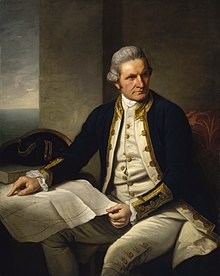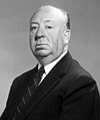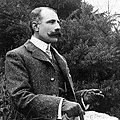
Back بوابة:إنجلترا Arabic Πύλη:Αγγλία Greek Portal:Inglaterra Spanish درگاه:انگلستان Persian Portail:Angleterre French Портал:Англија Macedonian Portal:Inglaterra Portuguese Портал:Англия Russian Portal:İngiltere Turkish Портал:Англія Ukrainian
The England portal

| |
England is a country that is part of the United Kingdom. It is located on the island of Great Britain, of which it covers approximately 62%, and over 100 smaller adjacent islands. It has land borders with Scotland to the north and Wales to the west, and is otherwise surrounded by the North Sea to the east, the English Channel to the south, the Celtic Sea to the south-west, and the Irish Sea to the west. Continental Europe lies to the south-east, and Ireland to the west. At the 2021 census, the population was 56,490,048. London is both the largest city and the capital.
The area now called England was first inhabited by modern humans during the Upper Paleolithic. It takes its name from the Angles, a Germanic tribe who settled during the 5th and 6th centuries. England became a unified state in the 10th century and has had a significant cultural and legal impact on the wider world since the Age of Discovery, which began during the 15th century. The Kingdom of England, which included Wales after 1535, ceased to be a separate sovereign state on 1 May 1707, when the Acts of Union brought into effect a political union with the Kingdom of Scotland that created the Kingdom of Great Britain.
England is the origin of the English language, the English legal system (which served as the basis for the common law systems of many other countries), association football, and the Anglican branch of Christianity; its parliamentary system of government has been widely adopted by other nations. The Industrial Revolution began in 18th-century England, transforming its society into the world's first industrialised nation. England is home to the two oldest universities in the English-speaking world: the University of Oxford, founded in 1096, and the University of Cambridge, founded in 1209. Both universities are ranked among the most prestigious in the world.
England's terrain chiefly consists of low hills and plains, especially in the centre and south. Upland and mountainous terrain is mostly found in the north and west, including Dartmoor, the Lake District, the Pennines, and the Shropshire Hills. The country's capital is London, the metropolitan area of which has a population of 14.2 million as of 2021, representing the United Kingdom's largest metropolitan area. England's population of 56.3 million comprises 84% of the population of the United Kingdom, largely concentrated around London, the South East, and conurbations in the Midlands, the North West, the North East, and Yorkshire, which each developed as major industrial regions during the 19th century. (Full article...)
Edward III (13 November 1312 – 21 June 1377), also known as Edward of Windsor before his accession, was King of England from January 1327 until his death in 1377. He is noted for his military success and for restoring royal authority after the disastrous and unorthodox reign of his father, Edward II. Edward III transformed the Kingdom of England into one of the most formidable military powers in Europe. His fifty-year reign is one of the longest in English history, and saw vital developments in legislation and government, in particular the evolution of the English Parliament, as well as the ravages of the Black Death. He outlived his eldest son, Edward the Black Prince, and was succeeded by his grandson, Richard II.
Edward was crowned at age fourteen after his father was deposed by his mother, Isabella of France, and her lover, Roger Mortimer. At the age of seventeen, he led a successful coup d'état against Mortimer, the de facto ruler of the country, and began his personal reign. After a successful campaign in Scotland, he declared himself rightful heir to the French throne, starting the Hundred Years' War (1337–1453). Following some initial setbacks, this first phase of the war went exceptionally well for England, and would become known as the Edwardian War. Victories at Crécy and Poitiers led to the highly favourable Treaty of Brétigny, in which England made territorial gains, and Edward renounced his claim to the French throne. Edward's later years were marked by foreign policy failure and domestic strife, largely as a result of his increasing inactivity and poor health. (Full article...)Selected article -
Captain James Cook FRS (7 November [O.S. 27 October] 1728 – 14 February 1779) was a British explorer, cartographer and naval officer famous for his three voyages between 1768 and 1779 in the Pacific Ocean and to New Zealand and Australia in particular. He made detailed maps of Newfoundland prior to making three voyages to the Pacific, during which he achieved the first recorded European contact with the eastern coastline of Australia and the Hawaiian Islands and the first recorded circumnavigation of New Zealand.
Cook joined the British merchant navy as a teenager and joined the Royal Navy in 1755. He served during the Seven Years' War and subsequently surveyed and mapped much of the entrance to the St. Lawrence River during the siege of Quebec, which brought him to the attention of the Admiralty and the Royal Society. This acclaim came at a crucial moment for the direction of British overseas exploration, and it led to his commission in 1768 as commander of HMS Endeavour for the first of three Pacific voyages. (Full article...)General images
The English invasion of Scotland of August 1400 was the first military campaign undertaken by Henry IV of England after deposing the previous king, his cousin Richard II. Henry IV urgently wanted to defend the Anglo-Scottish border, and to overcome his predecessor's legacy of failed military campaigns.
A large army was assembled slowly and marched into Scotland. Not only was no pitched battle ever attempted, but the king did not try and besiege Scotland's capital, Edinburgh. Henry's army left at the end of the summer after only a brief stay, mostly camped near Leith (near Edinburgh) where it could maintain contact with its supply fleet. The campaign ultimately accomplished little except to further deplete the king's coffers, and is historically notable only for being the last one led by an English king on Scottish soil. (Full article...)Did you know?

- ...that Mary Somerville was the first to sign John Stuart Mill's petition to give women the right to vote?
- ...that William the Conqueror's transport of over 2000 horses across the English Channel during the Norman invasion of England is depicted in the Bayeux Tapestry?
- ...that the Premier League's proposal to play some matches outside England was condemned by the Football Supporters' Federation as an "outrageous desecration of the national game"?
In the news

- 4 June 2024 –
- The National Health Service declares a "critical incident" after several hospitals in London, including King's College Hospital, say they have cancelled appointments and turned away patients after a cyberattack on their Synnovis IT systems. (AP)
- 1 June 2024 – 2023–24 UEFA Champions League
- In association football, Real Madrid win a record 15th Champions League title after defeating Borussia Dortmund 2–0 in the final at Wembley Stadium in London, England. (CNN)
- 29 May 2024 –
- Four people are injured in a mass shooting in Dalston, London, UK. (BBC News)
- 25 May 2024 – 2023–24 FA Cup
- Manchester United win their 13th FA Cup title after beating the defending champions, Manchester City, by a score of 2–1 in the final at Wembley Stadium in London, England. (The Guardian)
- 21 May 2024 – Singapore Airlines Flight 321
- A Singapore Airlines flight from London, England, to Singapore makes an emergency landing at Suvarnabhumi Airport in Bangkok, Thailand, after experiencing severe air turbulence over the Bay of Bengal, resulting in one death and at least 30 injuries. (BBC News)
Selected featured content
Categories
Selected quotes
| “ | Do not be misled by memories of your youth when, on the Continent, wanting to describe someone as exceptionally dull, you remarked: 'He is the type who would discuss the weather with you.' In England this is an ever-interesting, even thrilling topic, and you must be good at discussing the weather. | ” |
Related WikiProjects
England • Bedfordshire • Brighton • Cheshire • Cornwall • Derbyshire • Dorset • Greater Manchester • Hampshire • Lincolnshire • London • Merseyside • Northamptonshire • North East England • Sheffield • Surrey. Warwickshire • West Midlands • Worcestershire • Yorkshire
Topics
Things you can do

- Please visit the English Wikipedians' notice board and help to write new England-related articles, and expand and improve existing ones.
- Visit Wikipedia:WikiProject England/Assessment, and help out by assessing unrated English articles.
- Add the Project Banner to English articles around Wikipedia.
- Check for announcements and open tasks for ways to improve English related articles.
- Help nominate and select new content for the England portal.
- Requested articles: Charterhouse Lane • Renewable energy in England • Ealing Village
- Expand: Dorothy Boyd • David Troughton
Related Portals
 |
 |
 |
 |
 |
 |
 |
 |
| East Midlands | London | North East | North West | South East | South West | West Midlands | Yorkshire and the Humber |

|

|

|

|

|
| Ireland | Northern Ireland | Scotland | United Kingdom | Wales |
Associated Wikimedia
The following Wikimedia Foundation sister projects provide more on this subject:
-
Commons
Free media repository -
Wikibooks
Free textbooks and manuals -
Wikidata
Free knowledge base -
Wikinews
Free-content news -
Wikiquote
Collection of quotations -
Wikisource
Free-content library -
Wikiversity
Free learning tools -
Wikivoyage
Free travel guide -
Wiktionary
Dictionary and thesaurus
© MMXXIII Rich X Search. We shall prevail. All rights reserved. Rich X Search







































![Image 36The Staffordshire Hoard is the largest hoard of Anglo-Saxon gold and silver metalwork yet found[update]. It consists of almost 4,600 items and metal fragments. (from Culture of England)](http://upload.wikimedia.org/wikipedia/commons/thumb/6/60/Staffordshire_hoard_annotated.jpg/120px-Staffordshire_hoard_annotated.jpg)





























































